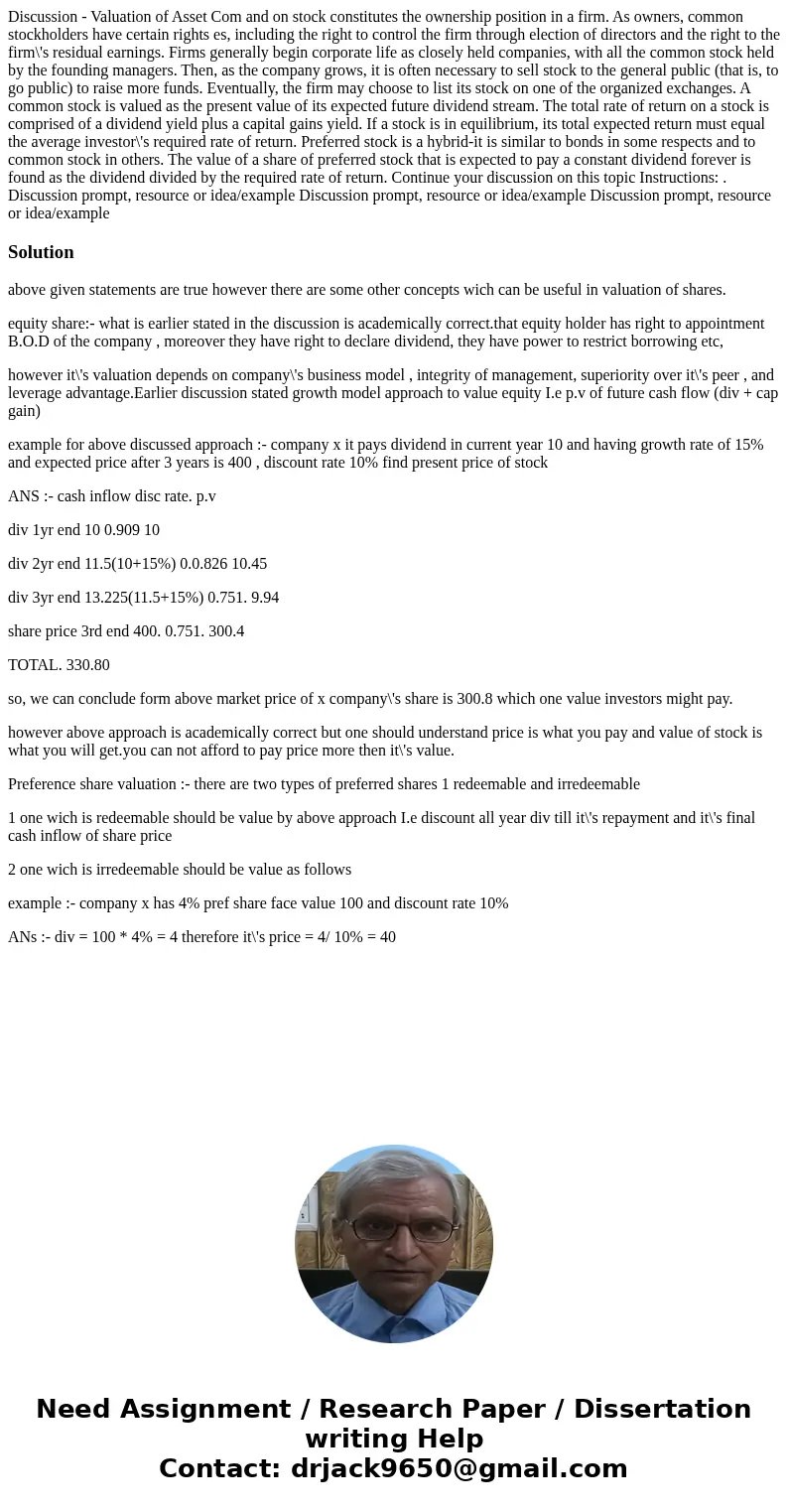Discussion Valuation of Asset Com and on stock constitutes
Solution
above given statements are true however there are some other concepts wich can be useful in valuation of shares.
equity share:- what is earlier stated in the discussion is academically correct.that equity holder has right to appointment B.O.D of the company , moreover they have right to declare dividend, they have power to restrict borrowing etc,
however it\'s valuation depends on company\'s business model , integrity of management, superiority over it\'s peer , and leverage advantage.Earlier discussion stated growth model approach to value equity I.e p.v of future cash flow (div + cap gain)
example for above discussed approach :- company x it pays dividend in current year 10 and having growth rate of 15% and expected price after 3 years is 400 , discount rate 10% find present price of stock
ANS :- cash inflow disc rate. p.v
div 1yr end 10 0.909 10
div 2yr end 11.5(10+15%) 0.0.826 10.45
div 3yr end 13.225(11.5+15%) 0.751. 9.94
share price 3rd end 400. 0.751. 300.4
TOTAL. 330.80
so, we can conclude form above market price of x company\'s share is 300.8 which one value investors might pay.
however above approach is academically correct but one should understand price is what you pay and value of stock is what you will get.you can not afford to pay price more then it\'s value.
Preference share valuation :- there are two types of preferred shares 1 redeemable and irredeemable
1 one wich is redeemable should be value by above approach I.e discount all year div till it\'s repayment and it\'s final cash inflow of share price
2 one wich is irredeemable should be value as follows
example :- company x has 4% pref share face value 100 and discount rate 10%
ANs :- div = 100 * 4% = 4 therefore it\'s price = 4/ 10% = 40

 Homework Sourse
Homework Sourse